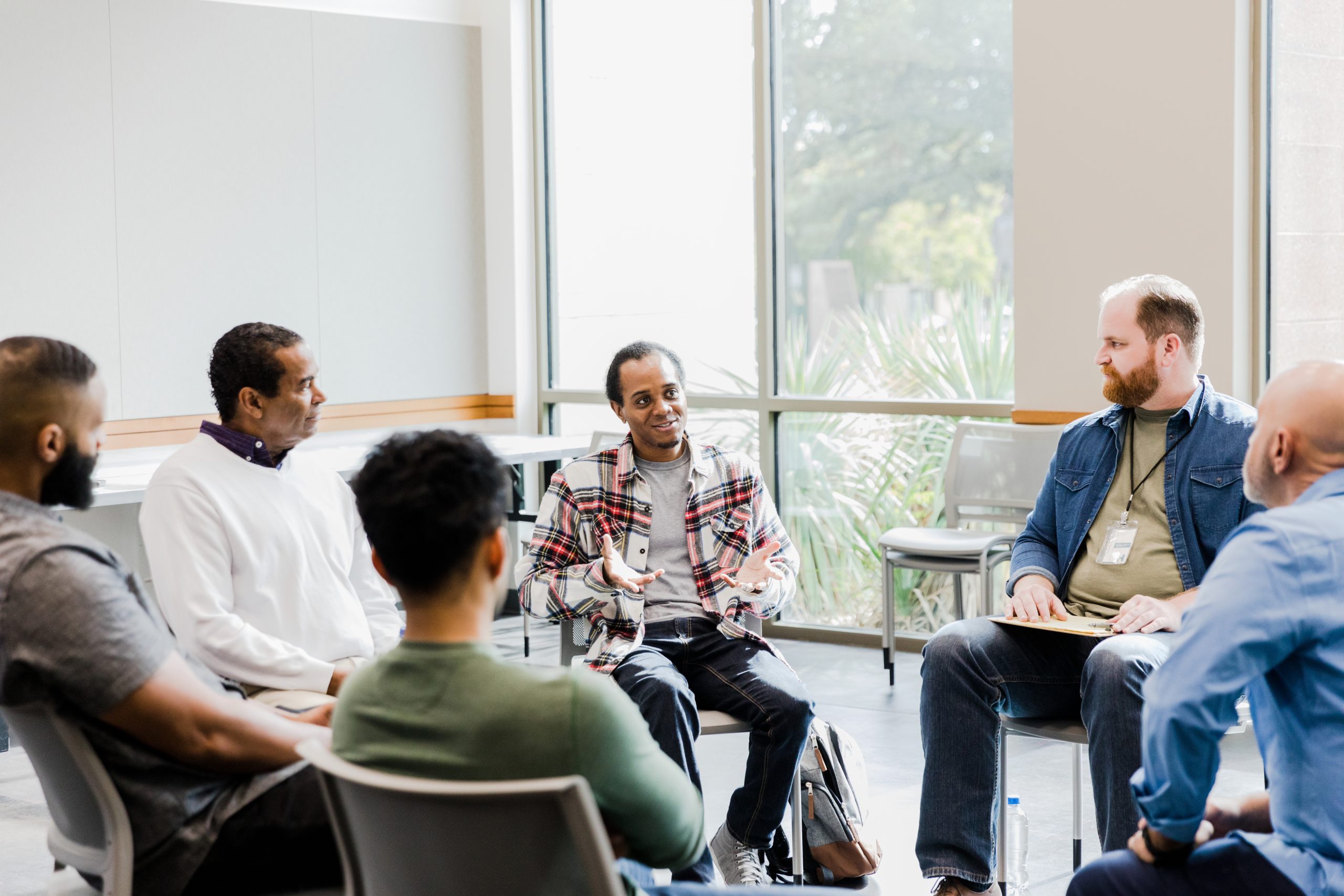
Residential treatment is an intensive, structured, and immersive recovery program. Individuals reside at a facility dedicated to their recovery from substance use disorders, mental health issues, or co-occurring disorders. Men’s residential treatment is a gender-specific type of care.

We’re here to help you get better. Reach out and receive personalized guidance and support.
These programs foster a sense of camaraderie and connection among men going through similar experiences. Peer support plays a vital role in men’s recovery. It allows them to share insights, challenges, and successes with individuals who can relate to their journey.
Family plays a crucial role in the recovery process. Programs often include family-oriented activities to address relationship dynamics. They can also enhance communication and foster a supportive network for the individual in treatment and their loved ones.

At Horizon Treatment Services, our Cronin House offers a safe and supportive environment for individuals seeking recovery from substance use disorders, mental health issues, and co-occurring disorders.
We also provide access to self-help programs like Alcoholics Anonymous (AA) and Narcotics Anonymous (NA), and the Wellness Recovery Action Plan (WRAP®). This is a group intervention for symptom and illness management delivered in a self-help group context.
To learn more about Cronin House and our residential program at Horizon Treatment Services, please contact us at (510) 784-5874 or https://www.horizonservices.org/contact-us/. Our dedicated team is ready to provide you with further information, answer any questions you may have, and assist you in taking the first step toward recovery.